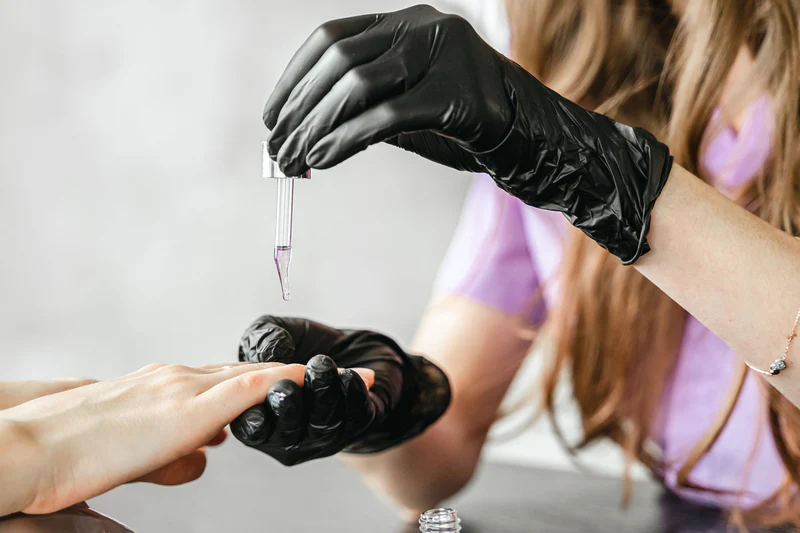How Nitrile Glove Manufacturing Services are Adapting to Market Needs
Nitrile glove manufacturing services are evolving rapidly to adapt to shifting market needs and demands. The surge in demand for nitrile gloves, driven by heightened awareness of hygiene and safety due to global health crises, has prompted manufacturers to innovate and streamline their processes. One of the significant adaptations has been the advancement in production technology. Modern nitrile glove manufacturers are investing in automated machinery and robotics to enhance efficiency, reduce production costs, and ensure consistent quality. Automation allows for higher throughput and precision, addressing the challenge of meeting large-scale demand while maintaining high standards of glove integrity. Moreover, manufacturers are diversifying their product offerings to cater to different sectors. Beyond the traditional use in medical and healthcare settings, nitrile gloves are increasingly utilized in various industries such as food processing, automotive, and electronics. This diversification necessitates the development of specialized gloves with unique properties, such as enhanced chemical resistance or improved tactile sensitivity. As a result, manufacturers are focusing on R&D to create gloves that meet specific industry requirements and offer superior performance in various applications.
Sustainability has also become a critical factor in the nitrile glove manufacturing sector. The environmental impact of glove production and disposal has prompted manufacturers to explore eco-friendly materials and processes. Innovations such as biodegradable nitrile gloves and the use of recycled materials are gaining traction. Companies are working on reducing the carbon footprint of their operations by optimizing energy consumption, minimizing waste, and adopting sustainable practices throughout the supply chain. This shift towards greener manufacturing practices reflects the growing consumer and regulatory pressure for environmentally responsible products. In response to market fluctuations and supply chain disruptions, manufacturers are also enhancing their flexibility and resilience. The pandemic highlighted the vulnerabilities in global supply chains, leading manufacturers to invest in local production facilities and diversify their sources of raw materials. By establishing more resilient supply chains and increasing domestic production capabilities, manufacturers aim to mitigate the risks of future disruptions and ensure a stable supply of nitrile gloves wholesale to the market.
 Quality control remains a top priority as manufacturers adapt to market needs. To address the increased demand and ensure that gloves meet stringent safety and performance standards, manufacturers are implementing rigorous testing protocols. This includes enhanced quality assurance measures during production and post-production to detect and rectify any defects. Advanced testing technologies and certification processes are employed to verify that gloves meet international standards and provide reliable protection for users. Furthermore, the digital transformation of the nitrile glove manufacturing sector is reshaping how companies operate and interact with customers. Manufacturers are leveraging digital tools and data analytics to optimize production processes, forecast demand, and manage inventory more effectively. This digital approach not only improves operational efficiency but also enhances customer engagement by providing real-time information on product availability and delivery status. Through technological advancements, product diversification, sustainability initiatives, supply chain resilience, rigorous quality control, and digital innovation, manufacturers are positioning themselves to address the growing demand for high-quality, reliable, and environmentally responsible nitrile gloves.
Quality control remains a top priority as manufacturers adapt to market needs. To address the increased demand and ensure that gloves meet stringent safety and performance standards, manufacturers are implementing rigorous testing protocols. This includes enhanced quality assurance measures during production and post-production to detect and rectify any defects. Advanced testing technologies and certification processes are employed to verify that gloves meet international standards and provide reliable protection for users. Furthermore, the digital transformation of the nitrile glove manufacturing sector is reshaping how companies operate and interact with customers. Manufacturers are leveraging digital tools and data analytics to optimize production processes, forecast demand, and manage inventory more effectively. This digital approach not only improves operational efficiency but also enhances customer engagement by providing real-time information on product availability and delivery status. Through technological advancements, product diversification, sustainability initiatives, supply chain resilience, rigorous quality control, and digital innovation, manufacturers are positioning themselves to address the growing demand for high-quality, reliable, and environmentally responsible nitrile gloves.